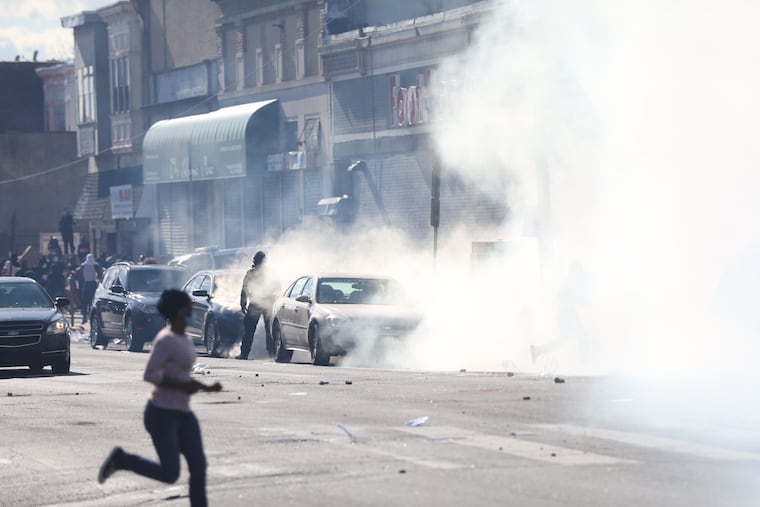Where do we go from here? That’s what we need to ask in the wake of George Floyd protests. | Jenice Armstrong
“Where we go from here for me is for the government and for leaders to call for a frank conversation that will have policies and bills attached to it that deal with white racism,” said Chad Dion Lassiter, executive director of the Pennsylvania Human Relations Commission.

The late Rev. Dr. Martin Luther King Jr. famously once said, “A riot is the language of the unheard.”
There’s no way that the slain civil rights leader would have condoned the kind of looting and mayhem that left businesses destroyed and buildings and cars smoldering here and elsewhere over the weekend. But King would have understood it.
» READ MORE: After a night of rage and destruction in Philly, religious leaders pray for peaceful protest
And if asked, he would have explained: America “has failed to hear that the plight of the Negro poor has worsened over the last few years. It has failed to hear that the promises of freedom and justice have not been met. And it has failed to hear that large segments of white society are more concerned about tranquillity and the status quo than about justice, equality and humanity. And so in a real sense our nation’s summers of riots are caused by our nation’s winters of delay. And as long as America postpones justice, we stand in the position of having these recurrences of violence and riots over and over again."
I wasn’t the first to relate these powerful words from a 1967 speech to a weekend during which Philadelphia police reported 200 arrests and numerous storefronts smashed and businesses looted.
But after City Controller Rebecca Rhynhart mentioned his famous quote outside City Hall during a peaceful demonstration Sunday and Marc Lamont Hill referenced it in a tweet, the words reverberated through my head for the rest of the day.
I don’t condone the looting and violence that took place over the weekend. But I certainly understand where it comes from.
What happened to George Floyd, a black Minnesota resident who died May 25 after, video showed, a white police officer kneeled on his neck for almost nine minutes, was emblematic of the police brutality African Americans have complained about for decades.
Former Minneapolis police officer Derek Chauvin is now in custody and facing charges of manslaughter and third-degree murder. But until other officers involved in Floyd’s death also face repercussions for what happened, justice will not come close to having been served.
And until people stop feeling the need to take to the streets to voice their discontent over how black people are treated in America’s criminal justice system, the risk that this kind of unrest will break out will remain.
“Our judicial system is biased against people of color,” pointed out Charles Gallagher, who chairs the criminal justice program at La Salle University. “We need to really rethink how we police in the United States of America. And until this happens, this is going to keep happening."
George Floyd’s case only lit the proverbial powder keg.
Other names have been similar rallying cries.
Ahmaud Arbery, 25, was jogging in Georgia when he was fatally wounded after being stopped by two men — one a former cop.
Breonna Taylor, a 26-year-old emergency room technician, was killed in Louisville, Ky., when police burst into her apartment while she was asleep.
Closer to home, there’s the case of David Jones. Ryan Pownall — formerly an officer in the 15th Police District — now faces counts of murder and related offenses for firing his weapon at the 30-year-old when he ran from a traffic stop in June 2017. Jones later died from two gunshot wounds to the back. Pownall is awaiting trial.
“Where we go from here for me is for the government and for leaders to call for a frank conversation that will have policies and bills attached to it that deal with white racism,” said Chad Dion Lassiter, executive director of the Pennsylvania Human Relations Commission. “You’re going to have to design a criminal justice system that is built on justice.”
“We have to deal with these things that America is having a hard time dealing with,” he added.
Until America fixes its deeply flawed criminal justice system, the unheard may continue to resort to riots and unrest, just as King predicted.